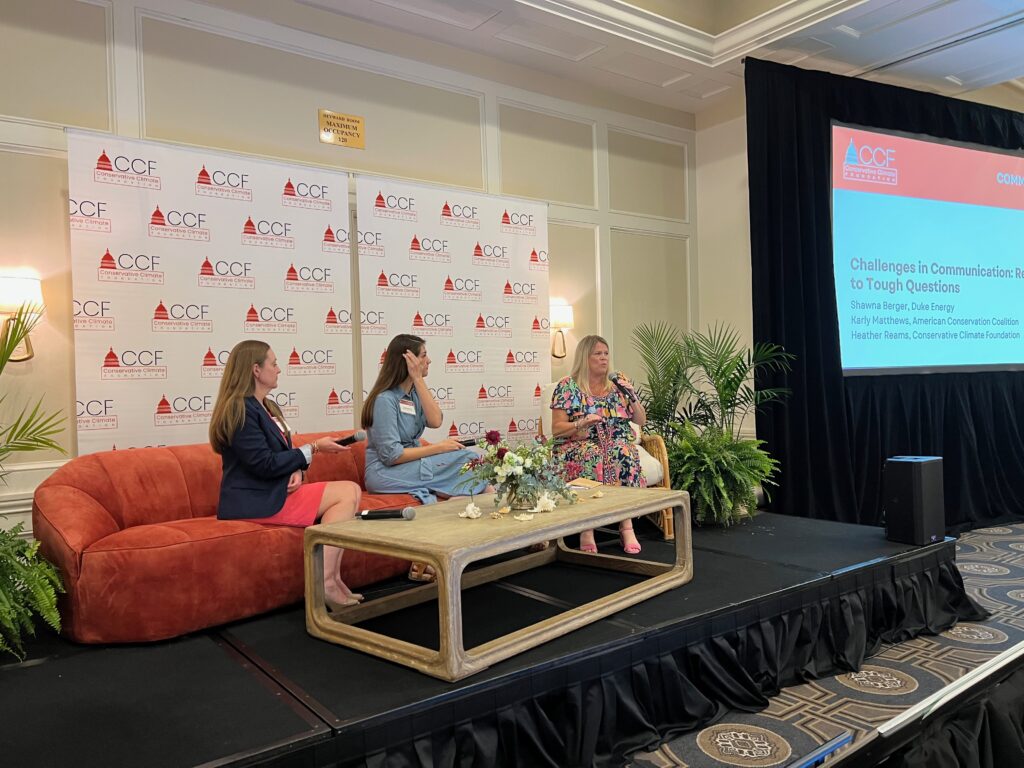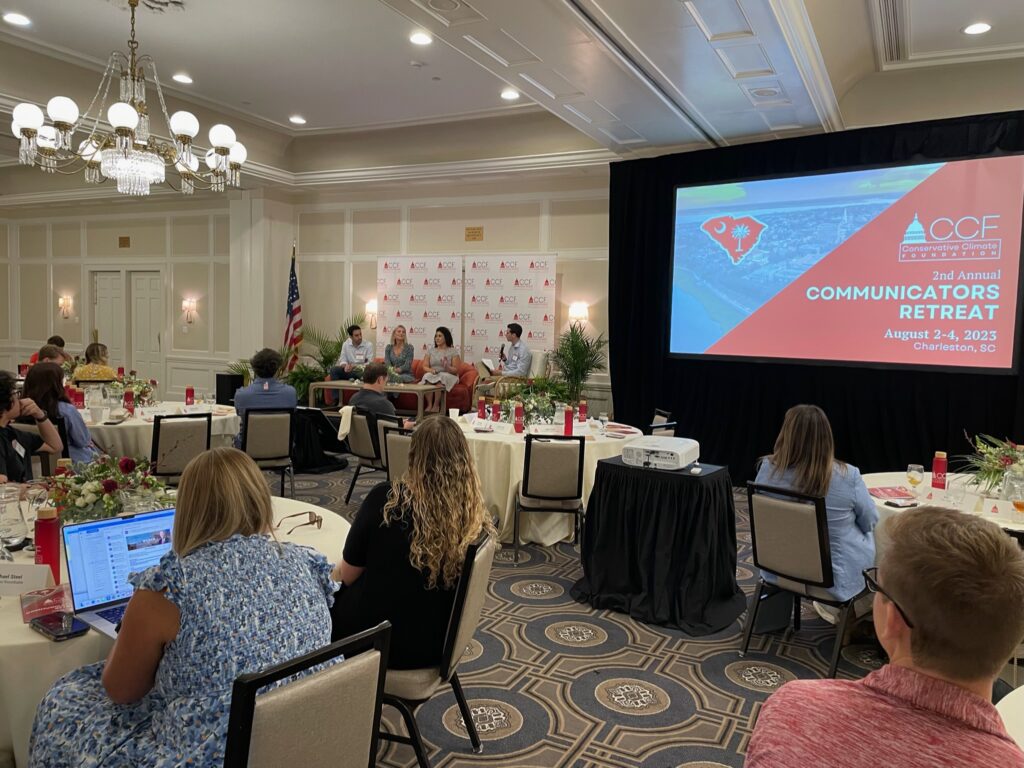To kick off August recess, Citizens for Responsible Energy Solutions (CRES) Forum took part in the Conservative Climate Foundation’s (CCF) 2nd Annual Communicators Retreat in Charleston, South Carolina. In attendance were over 70 U.S. House and Senate communicators, industry leaders, and partners uniquely positioned to champion an energy approach that lowers global carbon emissions, strengthens the economy, and keeps America competitive.

The retreat’s programming centered on educating attendees on the effects climate change has on coastal cities like Charleston and equipping communicators with the necessary tools to engage Congress and the media on responsible, conservative solutions to energy and climate concerns.
Participants saw firsthand the flooding and seawall erosion of the Charleston battery, a tour of the Charleston harbor, and how the Citadel’s new Center for Climate Studies is helping improve military and shoreline resilience. This hands-on experience, along with an ongoing dialogue with local leaders and advocacy experts, provided an impactful illustration on why policy must include provisions that protect and strengthen our coastal communities against the effects of climate change.

Equally important was the retreat’s special attention to the role that communicators play in growing support for and advancing policy that supports reduced emissions and energy affordability and reliability. Speakers representing a wide range of companies and organizations provided attendees with a blueprint for effective messaging and shared their personal experience navigating the current media landscape.
“At CRES, we know to achieve our goal of lowering global emissions, we must get our message right, and we are proud to prioritize building relationships with Members of Congress, their staff, and likeminded associations who understand the importance of commonsense policies, like reforming our federal permitting processes, supporting federal investments in innovation, and more,” said CRES President Heather Reams. “Getting out of D.C. and gathering for this important event in a city particularly vulnerable to the consequences of climate change was critical to our efforts and overall mission.”